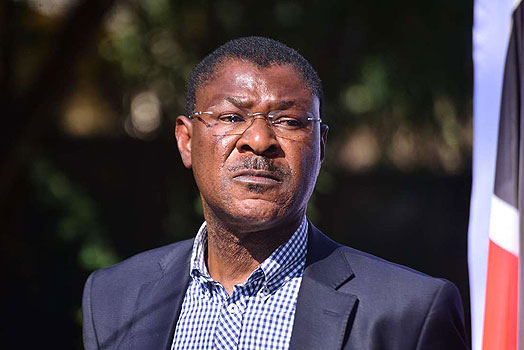Regular police officers receive more bribes than their traffic counterparts for basic services, according to research on corruption and unethical practices within the police service. The Ethics and Anti-Corruption Commission (EACC) has also revealed that the average bribe amount paid to both regular and traffic police officers increased by 39.1% and 84.2%, respectively, between 2022 and 2023.
For instance, in 2023, the average bribe paid to regular officers was Ksh 11,115, while traffic police received an average of Ksh 7,011. Police officers commonly demand bribes for services such as obtaining police abstracts, bailing out arrested individuals, providing police protection, and issuing police clearance certificates. The study found that the majority of bribes were paid by individuals seeking police abstracts.
EACC to Audit Police Service for Corruption Risks
To curb corruption, the EACC has launched an initiative to examine the systems, processes, and procedures within the National Police Service (NPS). The audit aims to identify and map out potential corruption and governance risks while developing strategies to mitigate corrupt practices.
Upon completion, the EACC will submit a comprehensive report with its findings and reform recommendations to the Inspector General of Police for implementation.
EACC CEO Abdi Mohamud stated that if fully implemented, the recommendations would accelerate the realisation of the National Police Service’s vision of becoming “A World-Class Police Service.” “At the end of this exercise, the Commission will prepare and share a report of its findings and recommendations with the leadership and command of the National Police Service,” he said.
The CEO urged all ranks within the NPS to support the successful implementation of the exercise. The event, held at Embakasi Police Campus, brought together senior officials from both the EACC and NPS. It was officiated by EACC Chairperson David Oginde and Inspector General of Police Douglas Kanja.
The commission noted that the NPS has consistently ranked among the most corrupt institutions in national surveys. CEO Mohamud added that the EACC has investigated numerous bribery and corruption cases within the police service.
Given the critical role of the police in national security and socio-economic development, he emphasised the importance of addressing corruption within the NPS.
Key Areas of Focus
The EACC team will analyse and profile areas in police systems, policies, procedures, and practices that are vulnerable to corruption. The audit will assess compliance with existing laws, regulations, and industry standards.
The exercise will also provide recommendations to address weaknesses and enhance service delivery within the NPS. Additionally, the commission will offer technical support in implementing reforms by developing a risk mitigation plan with specific strategies and programmes.
The audit will cover various areas, including police reforms, administration, finance, supply chain management, human capital development, and corporate communications. Other targeted sectors include:
- Legal Services Directorate
- Operations of the Kenya Police Service
- Operations of the Administration Police Service
- Operations of the Directorate of Criminal Investigations (DCI)
- Internal Affairs Unit
- Police training colleges
Implementation Timeline
The anti-corruption audit is scheduled to take place between 11 February 2025 and 25 July 2025.
“The Commission will thereafter work with the leadership of the NPS to ensure the report is successfully implemented and any emerging challenges are addressed,” said CEO Mohamud. Inspector General Douglas Kanja welcomed the initiative, stating that it would play a crucial role in reforming and improving the police service.





